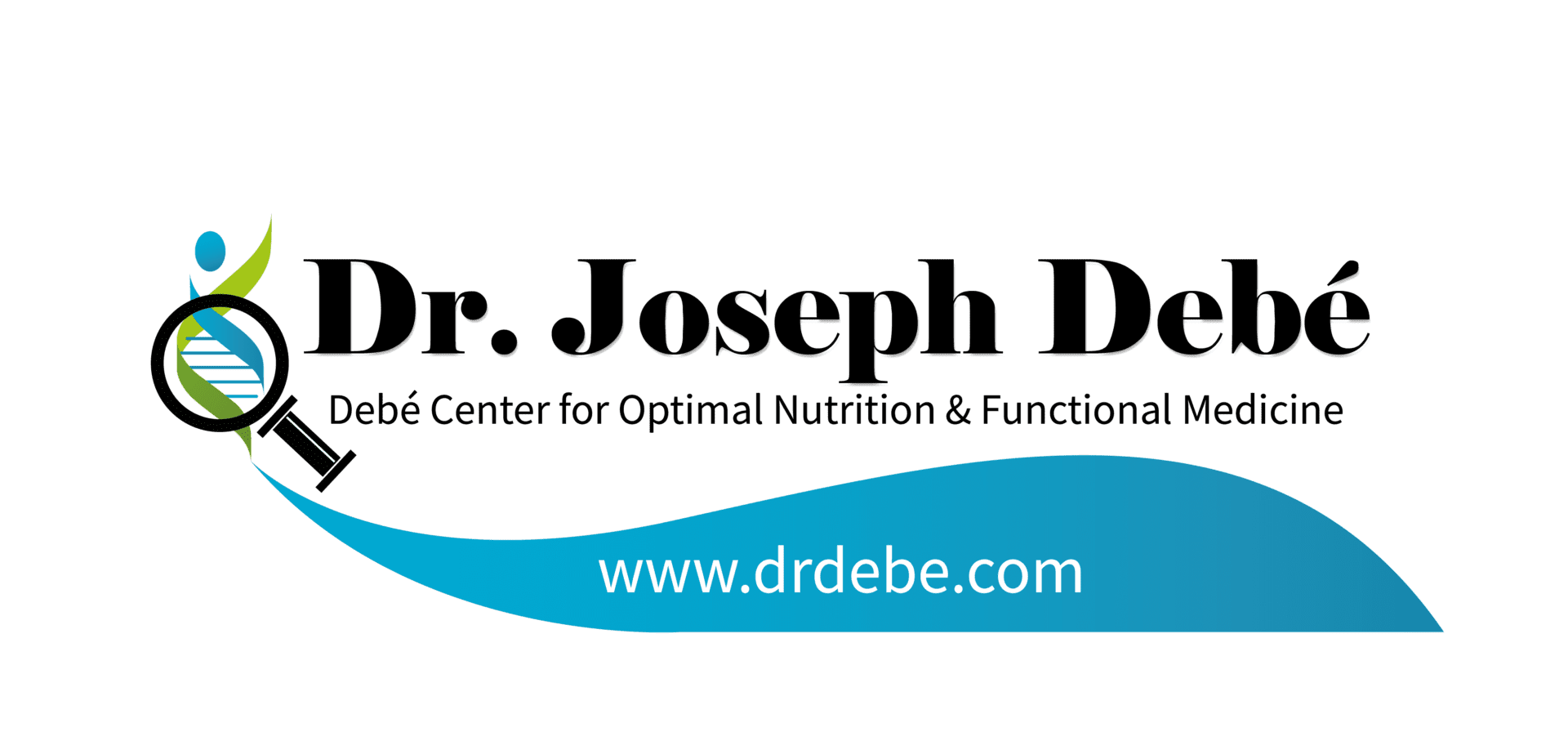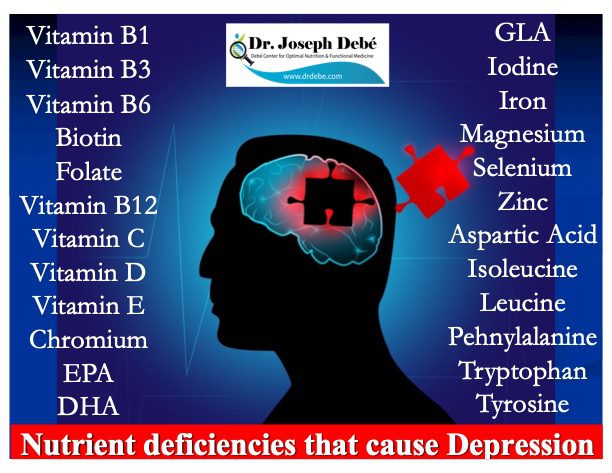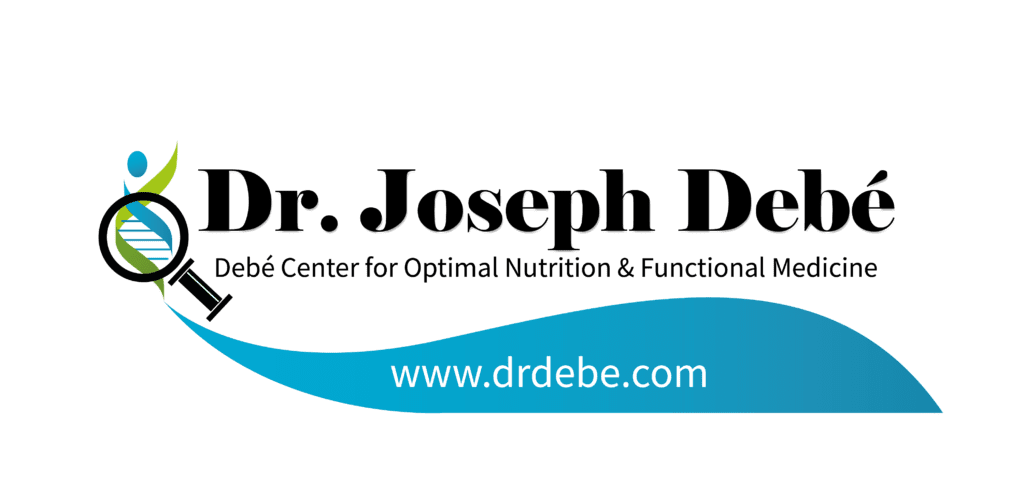Years ago, a psychiatrist who was being paid by a big drug company to give lectures on the benefits of an antidepressant medication, told me “a secret”. He told me that antidepressant medication does not work for 70% of patients!
Recently, a large analysis was published, which confirmed this fact. My psychiatrist colleague was a big advocate of a natural supplement as an add-on treatment for depression; for many people who don’t get adequate benefit from antidepressant medication, adding a “drug” called Deplin to the treatment often works. Deplin is, in fact, high dose vitamin B9, also known as L-5-methyltetrahydrofolate (L-5-MTHF) or folate, for short.
A blockbuster new study totally blows the lid off this whole subject. “Comparative efficacy and tolerability of nutraceuticals for depressive disorder: A systematic review and network meta-analysis” is the name of this recent publication, which examined the effectiveness of natural supplements, referred to as nutraceuticals, for improving depression, both when added to antidepressants (abbreviated, ADT) and when used alone.
The study analyzed 192 trials involving 17,437 patients and 44 different nutraceuticals. Findings indicated that adjunctive nutraceuticals consistently outperformed antidepressant medication alone in measures such as symptom reduction, remission rates, and response rates.
Notable combinations included EPA + DHA (omega-3 fatty acids found in fish oil) with ADT, S-Adenosyl Methionine (SAMe) with ADT, curcumin with ADT, zinc with ADT, folate with ADT, and tryptophan with ADT – all showing significant improvements in depressive symptoms.
The best lab test choices to evaluate nutrients that influence mood are the Individualized Optimal Nutrion profile and the Micronutrient Panel.
The fact is, “the Emperor has no clothes”. Decades ago I heard an interview with a drug industry insider who stated that many studies on antidepressant medications never get submitted for publication if the results are not good. Profit is the bottomline. Not only do drugs have more side effects than natural approaches. This new study shows that four natural products were more effective in dealing with depression than the drugs were!
EPA + DHA (fish oil), SAMe, curcumin, and saffron all were more effective as stand alone treatment than antidepressant medication!
It is reasonable to try one of these natural supplements. However, I think some personalization can work wonders.
My recommendation is to investigate the underlying causes for depression. In addition to the mental or psychological contributors, there are quite a few areas to investigate that are best done with a functional medicine work-up.
One cause of chronic unwellness, including symptoms of depression, is nutrient deficiency. Your conventional doctor may test your vitamin D and vitamin B12. What about all the other dozens of nutrients that may cause depression when lacking? It is important to understand that the findings of this impressive meta-analysis on nutraceuticals does not exclude the possibility that, for a given individual, another nutrient, like magnesium, for example, may be the key.
It makes sense that improvement in depression (and other symptoms) would be superior when underlying causes are targeted; if your EPA + DHA levels are good, supplementing it is unlikely to have benefit. Another important reason to do a thorough work-up is that depression is only one of a number of effects when a nutrient is lacking. EPA + DHA, folate, zinc, and tryptophan are nutrients that are found in a balanced diet, although for genetic and other reasons, requirements vary quite a bit among individuals. SAMe is naturally occurring in the body and is made from the essential dietary amino acid methionine with the help of magnesium, vitamin B12, and folate. If folate is lacking, a critical biochemical process called methylation is impaired. Methylation has diverse critical functions, including neurotransmitter metabolism, genetic expression (which genes are more active and which genes are more quiet), DNA and protein repair, homocysteine inactivation, estrogen metabolism, detoxification, energy production, and myelin formation, to name a few. Some of the more than 50 conditions associated with impaired methylation are fatigue, mental health disorders, cardiovascular disease, dementia, certain cancers, some autoimmune conditions, miscarriage, osteoporosis, and arthritis. Obviously, not addressing the underlying causes of depression may have devastating consequences.
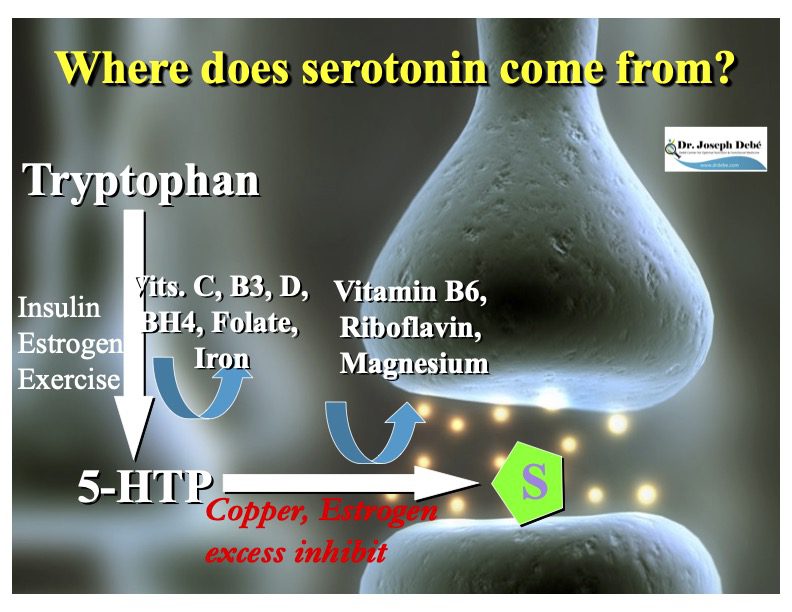
One of the “feel-good” neurotransmitters, serotonin, is made from the amino acid tryptophan with the help of a number of nutrients, including folate, riboflavin, iron, magnesium, and vitamins B3, B6, C, and D. Some of these nutrients help produce a critical cofactor, BH4 (tetrahydrobiopterin), which some people are genetically-prone to be lacking. SSRI (selective serotonin reuptake inhibitor) drugs keep serotonin active longer but do nothing to create serotonin in the first place. That is all dependent upon nutrition. With good nutritional status, DHA from fish oil is the most abundant fatty acid in brain cell membranes. This gives proper fluidity to the membranes, resulting in optimal serotonin binding, allowing it to send a strong “feel good”, relaxing signal into the cell.
Curcumin is not a nutrient but has many powerful beneficial effects for health. Some of the initiators of depression that curcumin improves are inflammation, oxidative stress, dysbiosis, leaky gut syndrome, impaired methylation, and altered glucose-insulin metabolism. All these facets of physiology can be evaluated and optimized through individualized diet, exercise, lifestyle, nutraceuticals, and other natural interventions.
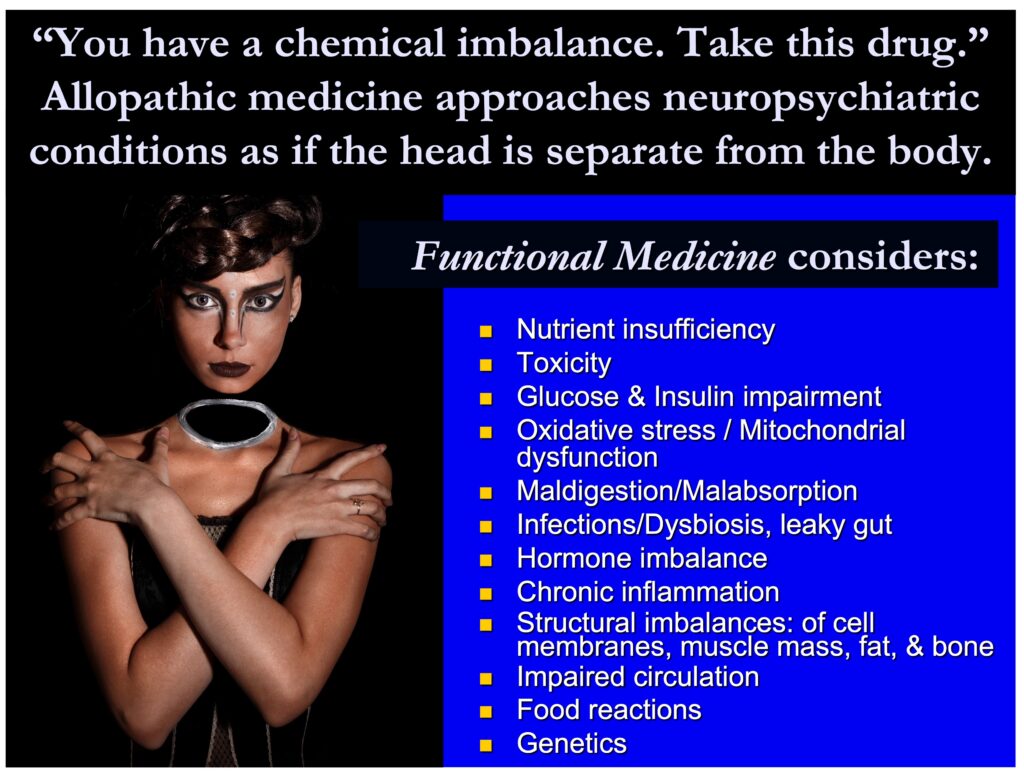
Functional medicine has the operating system to get to underlying causes, regardless of the symptom or diagnosis. Once the causes are identified, natural approaches can be used to restore optimal function to the body and improve mood.
